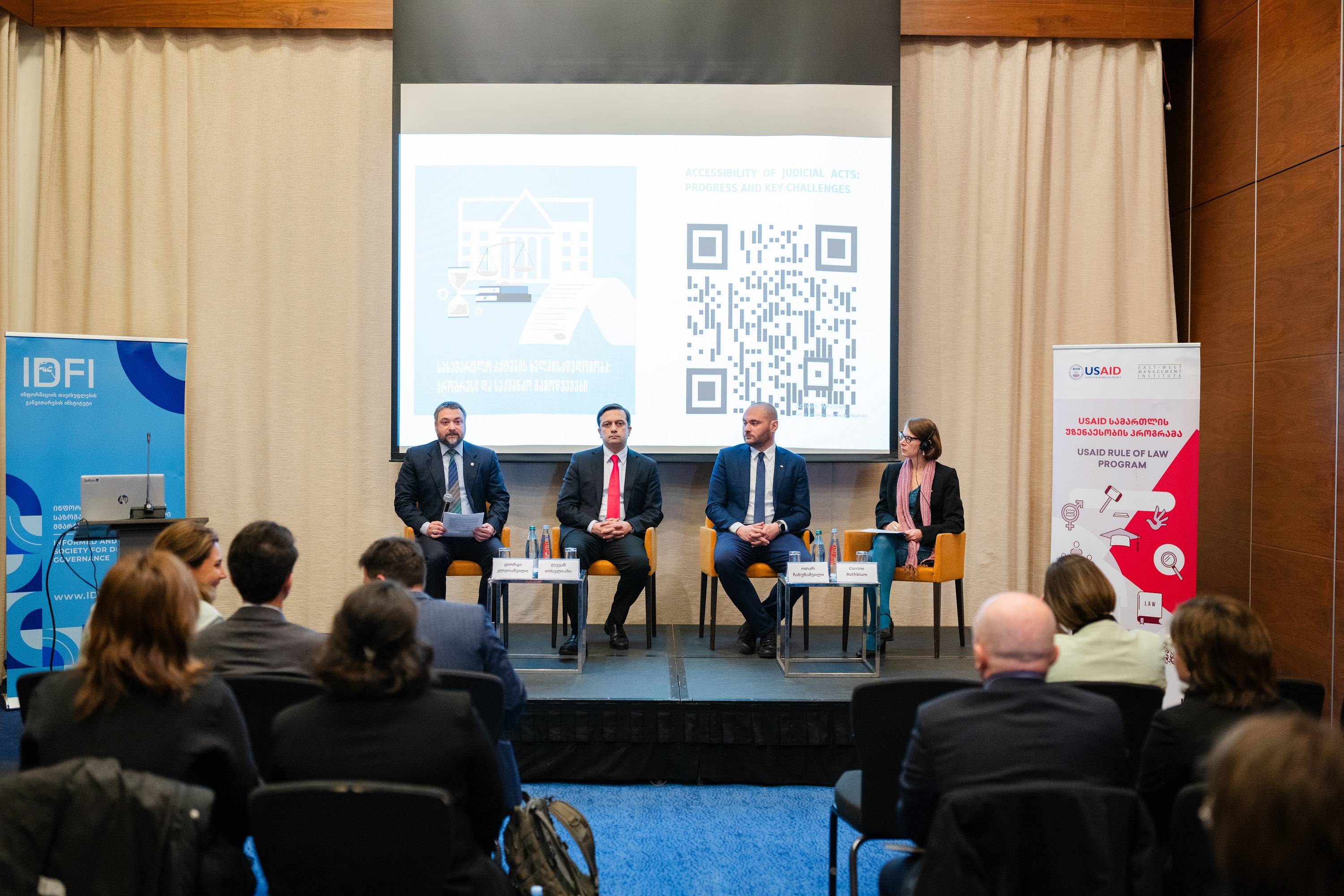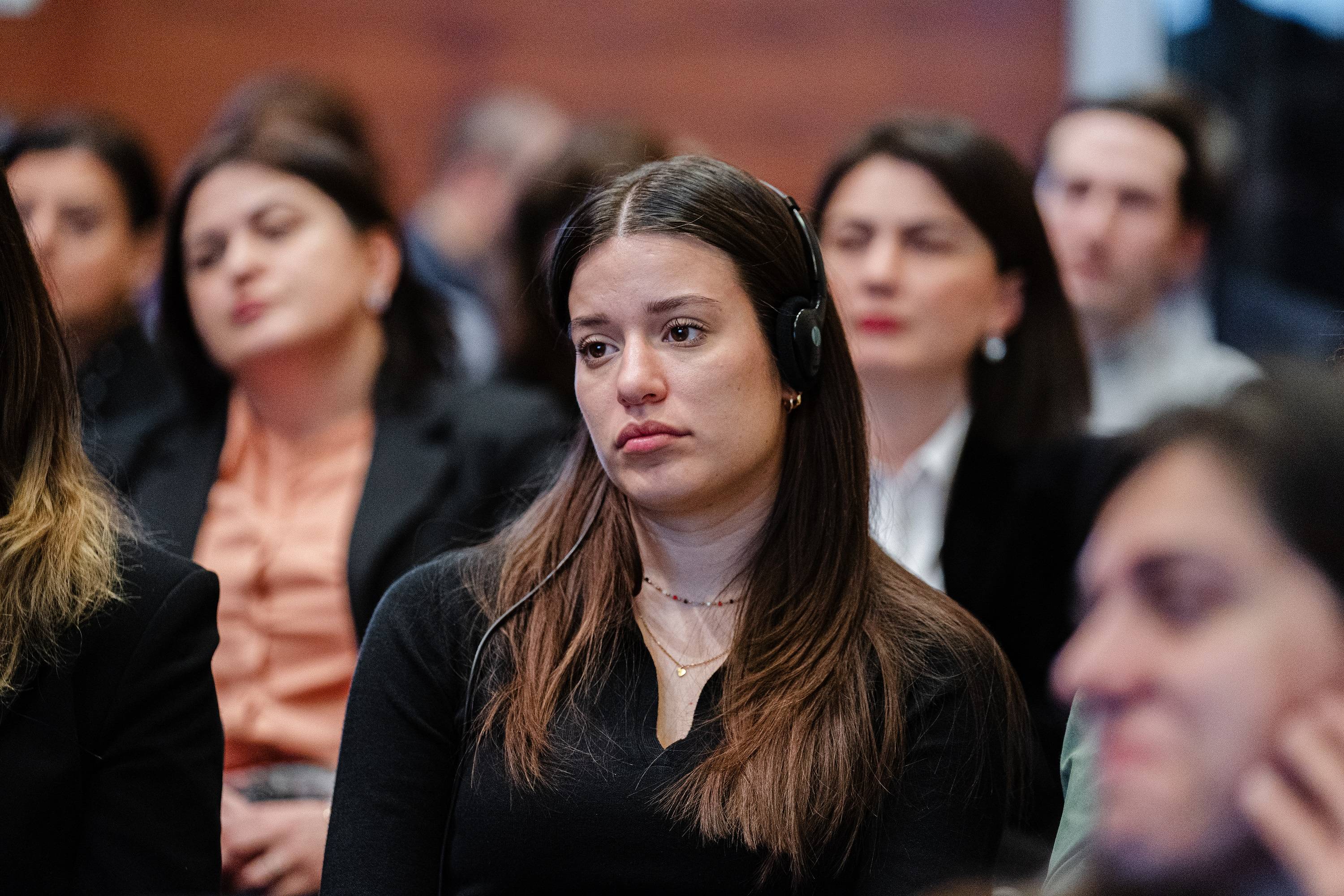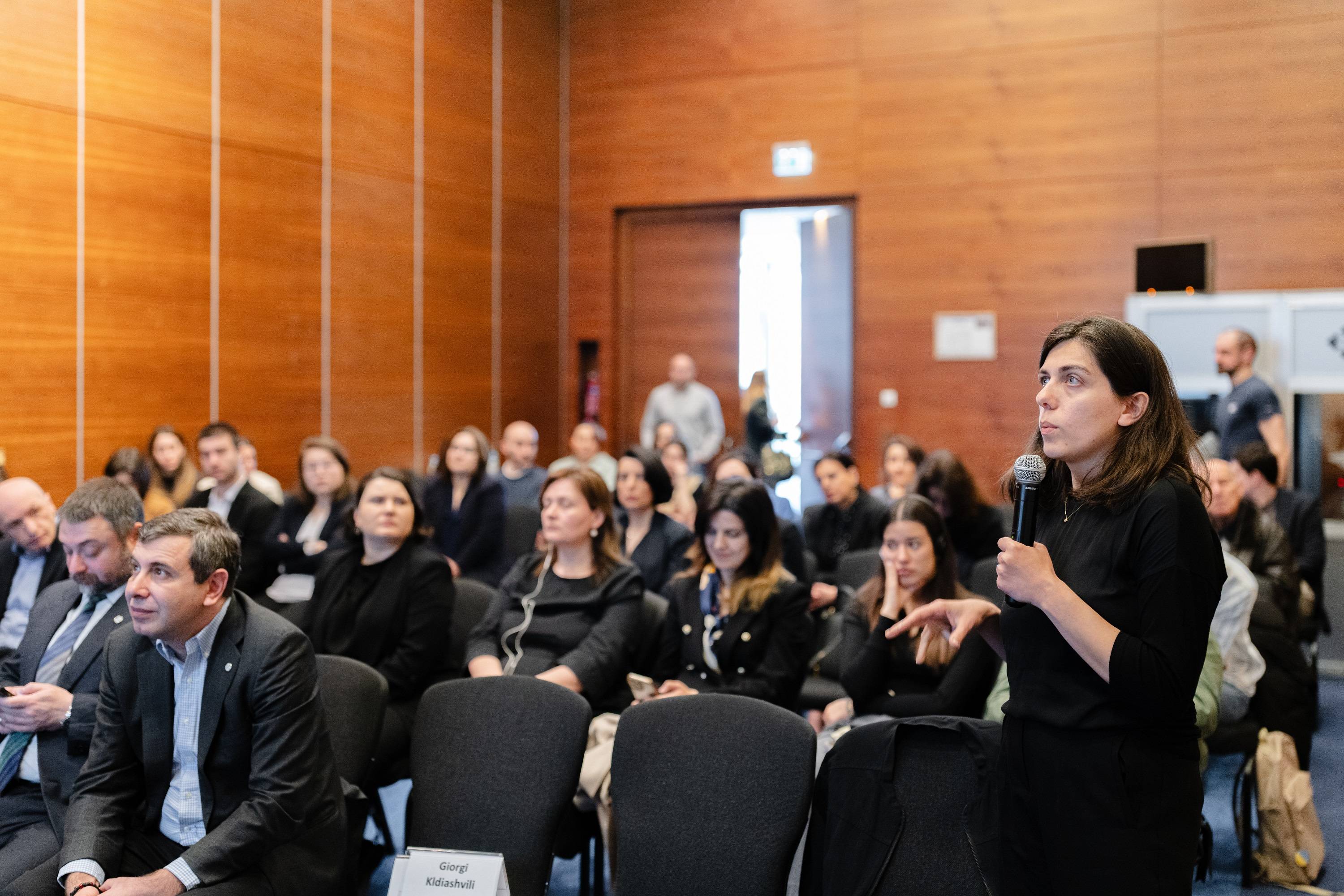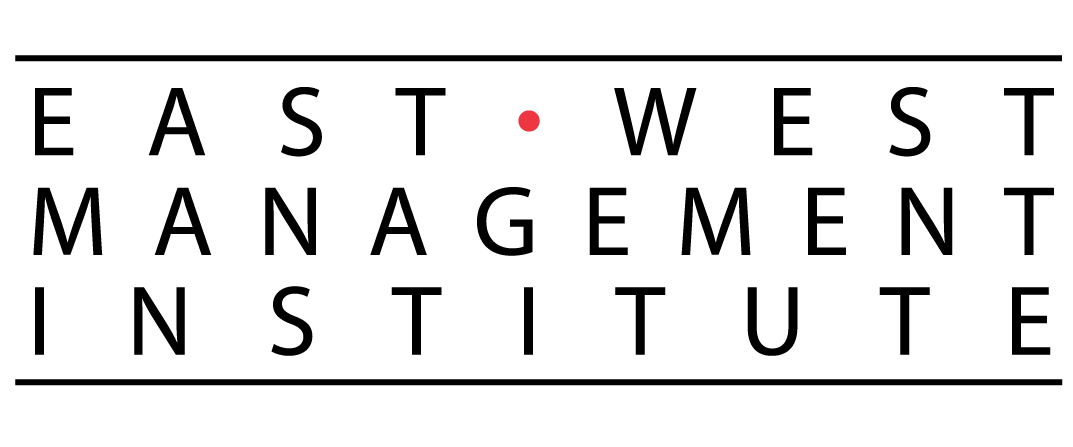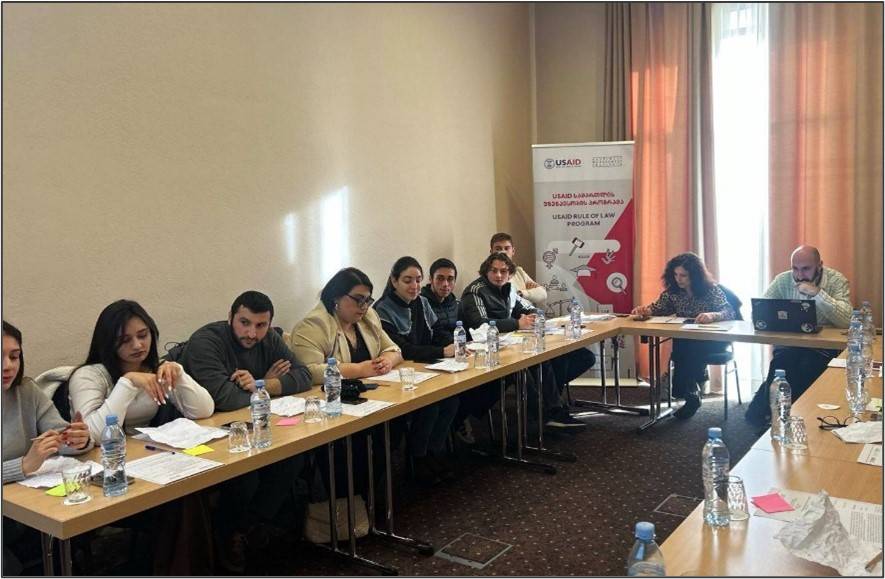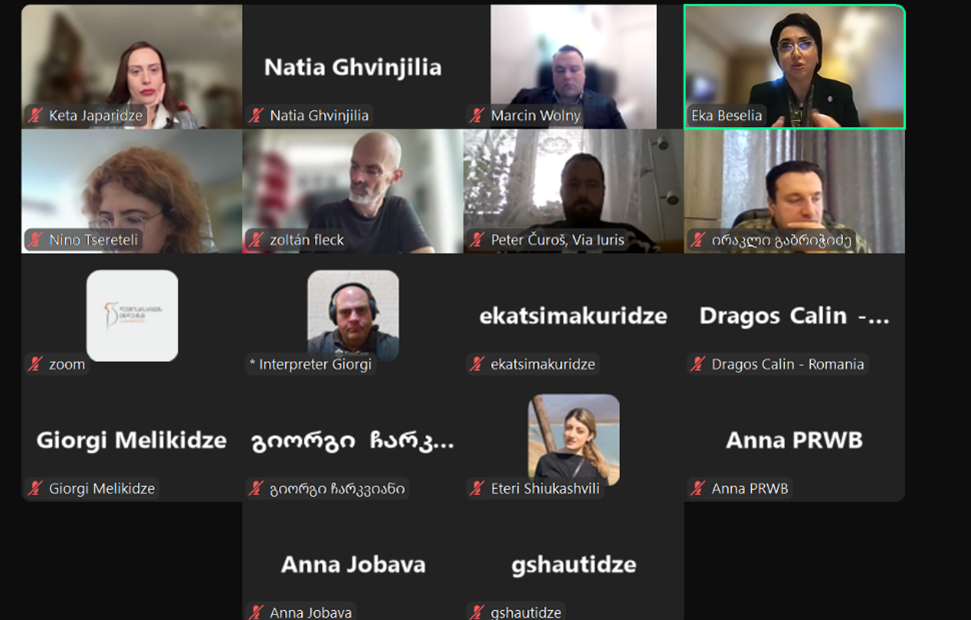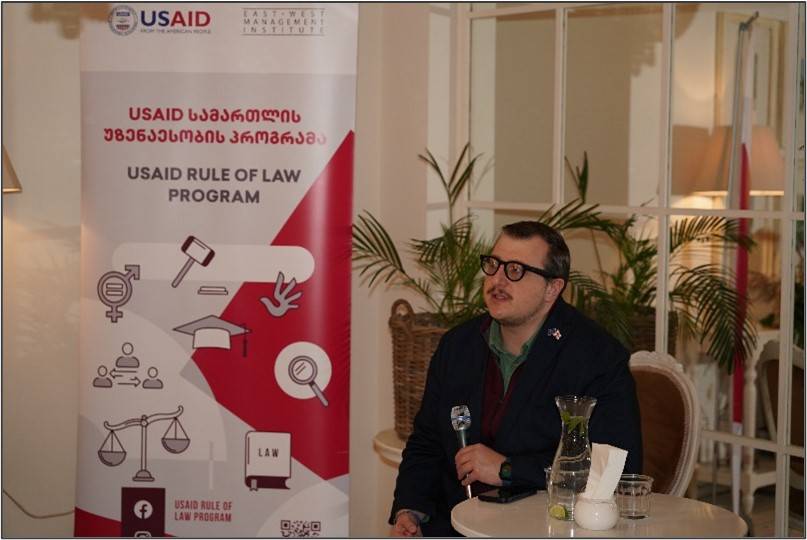IDFI Reports on Accessibility of Judicial Acts
On March 29, 2024, the Institute for Development of Freedom of Information (IDFI), supported by the USAID Rule of Law Program, presented its Report on Accessibility of Judicial Acts. Approximately 50 representatives of the Constitutional Court, Parliamentary staff, the Public Defender, the Personal Data Protection Service, as well as local and international organizations and legal professionals attended the event.
Giorgi Kldiashvili, Executive Director of IDFI, Levan Ioseliani, the Public Defender of Georgia, Otar Chakhunashvili the First Deputy Head of the Personal Data Protection Service and Corinne Rothblum, Acting Director of the Democracy, Rights and Governance Office at USAID/Caucasus welcomed the audience.
In her opening remarks, Ms. Rothblum stated, "USAID has proudly partnered with IDFI and other organizations in Georgia supporting their efforts to monitor, research, assess, and openly discuss developments in the judicial system. Gatherings like today are crucial opportunities to share research findings and discuss how challenges can be addressed and to ensure that all stakeholders are part of the conversation. Public access to judicial decisions that set important legal precedents is important both from the perspective of freedom of information and to build public trust in the judiciary.”
Following the opening remarks, the Head of the Constitutional Court’s Secretariat, Giorgi Lomtadze presented the main constitutional standards related to the accessibility of judicial acts. Giorgi Davituri, Head of IDFI's Rule of Law and Media Freedom Direction, then provided the audience with a comprehensive overview of the report’s findings and recommendations.
IDFI’s new report explains the policy changes leading up to the current state of the law and practice related to judicial acts. It notes that the legislative framework, effective as of January 1, 2024, establishes improved standards for accessing judicial acts via public information requests. However, monitoring the application of the new legal framework has revealed that the legislative amendments are not fully enforced.
Specifically, as of February 29, 2024, all common courts in Georgia have left public information requests unanswered, and as of March 26, 2024, eight courts have only provided information following the submission of administrative complaints. Additionally, there has been no renewal of the proactive publication of judicial acts on the ecd.court.ge website.
